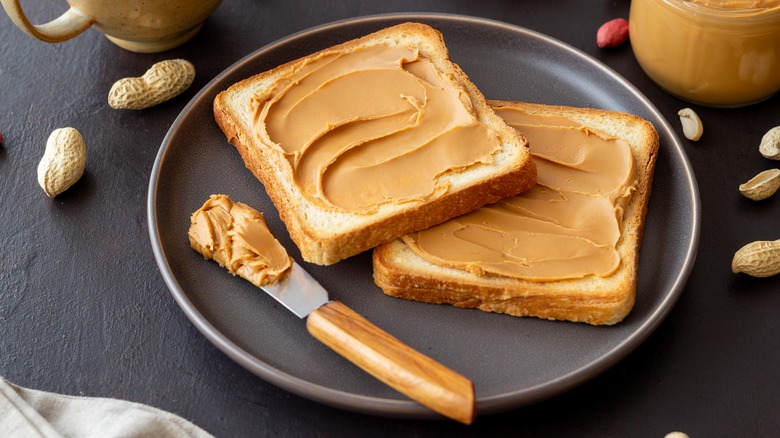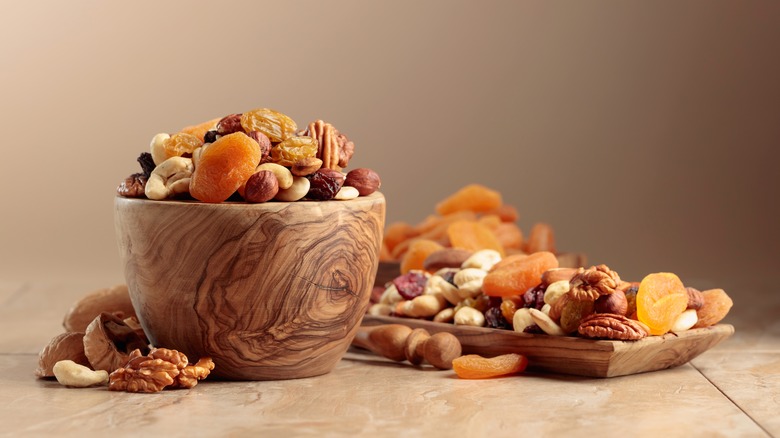Eating Peanut Butter As You Age Has Some Major Benefits
Many people will occasionally find ways to cut calories after recognizing how they might have overindulged in some unhealthy foods that add a little extra to their waistline. As you age, however, you might not need as many calories because you're less active. You might also need to think about getting the right nutrients in your body.
Older adults sometimes find it difficult to get enough nutrition in their bodies due to low appetite or limited mobility to fix healthy meals. Protein is essential for older adults to avoid muscle loss that could lead to frailty or falls, so older adults might need more protein as they age. It might also be harder for older adults to get enough protein because chewing or swallowing meat can become more difficult.
To add more calories, protein, and other nutrients to their diet, older adults could turn to nutrient-dense peanut butter. Two tablespoons of reduced-sodium peanut butter provides 189 calories, 8 grams of protein, and 16 grams of fat (less than 3 grams of saturated fat). Peanut butter and other nuts have nutritional benefits that can improve your health as you age.
Peanut butter might improve your cognitive function
A 2021 study in Current Developments in Nutrition collected the food intake of almost 3,000 people between the ages of 60 and 80. The people also took part in certain tests of memory and cognitive function, such as naming as many animals as possible in 60 seconds. The people who ate peanut butter and peanuts were more likely to do better on the cognitive and memory tests than those who didn't consume them.
It might be something about peanut butter's effect on your gut health that could improve not only memory but also mood, according to a 2023 study in the Journal of Functional Foods. Researchers had younger adults eat either 25 grams of peanuts, 32 grams of peanut butter (about two tablespoons), or 32 grams of a control butter every day. After six months, the researchers found certain metabolites in the urine of those who ate peanuts and peanut butter. The peanut and peanut butter groups also improved their mood and memory. The researchers concluded that peanuts and peanut butter have certain polyphenols that are metabolized by the gut bacteria to produce substances that improve mood and brain function.
Nuts are beneficial for healthy aging
Even if you're in midlife, eating more nuts now can be key to healthy aging later, according to a 2020 article in the Journal of Aging Research. More than 33,000 women in their 50s and early 60s recorded their food intake for 10 years. Those who lived beyond the age of 65 free from chronic disease, mental health conditions, physical disabilities, and memory impairment were defined to be "healthy agers." Looking through their diets, the researchers found that the healthy agers were more likely to consume more peanuts, walnuts, and other nuts, but not peanut butter. When adjusting for other factors, eating more walnuts was found to be closely associated with healthy aging.
Aging is often associated with frailty, which includes fatigue, reduced strength and aerobic capacity, increased chronic conditions, and weight loss. A 2023 study in The Journal of Nutrition looked at how nuts could be linked to reduced frailty in women over 60. Among more than 70,000 women, those who ate five or more servings of nuts a week had a 20% reduced risk of frailty. However, neither of these studies found that peanut butter was associated with healthy aging or frailty.



